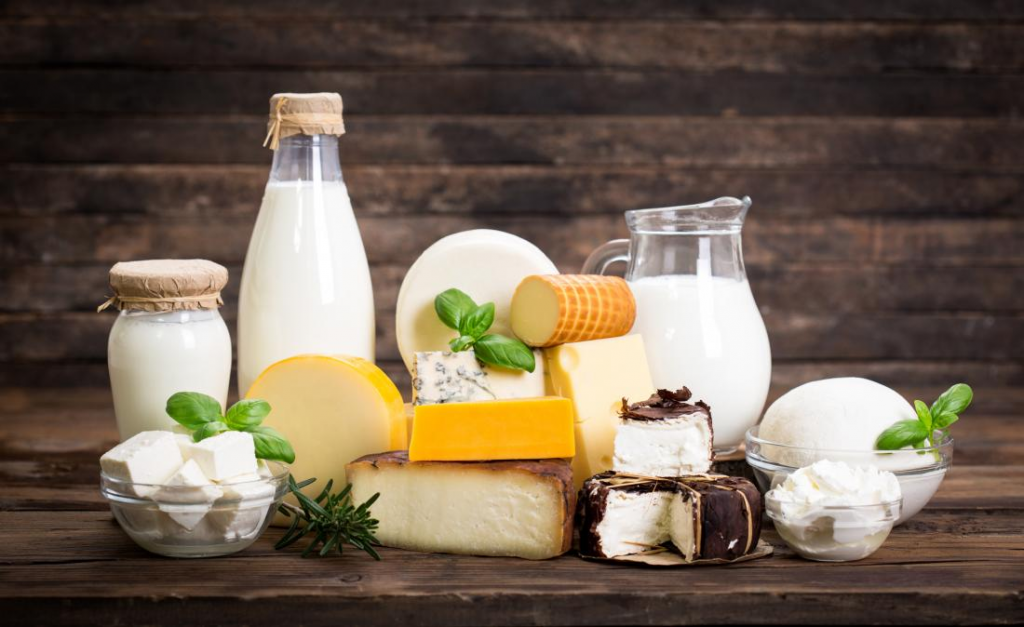28 Mar The Importance of Eating a Balanced Diet
Eating a balanced diet is an important factor in living a healthy lifestyle.
A balanced diet involves consuming a variety of food from each of the five main food groups, in their recommended amounts, every day. It is important to eat a balanced diet to maintain energy throughout the day and to ensure your body is receiving all the nutrients it needs to function at its best.

The Australian Guide to Healthy Eating is an Australian Government food selection tool that visually represents the proportion of each of the main food groups individuals should be consuming daily. The five main food groups shown in the guide are:
- Vegetable and legumes/beans
- Grain foods
- Fruit
- Lean meats and poultry
- Milk, yoghurt, cheese and/or alternatives
Each of these food groups have different nutrient properties that are essential to the normal functioning of the body.
Vegetables and Legumes/Beans, and Fruit:

Fruits and vegetables contain an array of vitamins and minerals that are essential for our health. They contain fibre which is important in keeping our bowels healthy and making us feel fuller for longer. Additionally, fruits and vegetables are a good source of antioxidants which assists in our immune system functioning.
Fruits and vegetable come in a variety of different colours and textures, with each different colour containing different types of nutrients i.e., oranges and carrots contain Vitamin A which is essential for our eye health and vision. The large variety also assists in diversifying our meals, keeping it exciting and new. Therefore, following the saying “eat the rainbow” is important as it will ensure your body is getting all the nutrients it needs.
Recommended daily intake of vegetables and legumes/beans: at least 5 serves
Recommended daily intake of fruit: 2 serves
Grain Foods:

It is important to ensure you are choosing wholegrain foods rather than refined grain foods as wholegrains offer a wide range of nutritional benefits compared to refined grains that are stripped of their nutritional value during the refining process. This includes choosing foods such as, wholegrain bread rather than white bread and brown rice rather than white rice.
Wholegrain foods are a key source of carbohydrates. Carbohydrates are our body’s preferred source of energy, and are used to support regular bodily functions and physical activity. Additionally, wholegrain foods are a great source of many vitamins and minerals, including iron, zinc, magnesium, and the B-vitamins. Wholegrain varieties also contain additional fibre, which keeps our gut healthy, keeps us fuller for longer and assists in lowering our LDL (‘bad’) cholesterol.
Recommended daily intake of grain foods: 4-6 serves
Lean Meats and Poultry:

Lean meats and poultry are an excellent source of protein. Protein is an important nutrient that is essential for growth and development as it plays a major roll in cell growth and repair. It also helps to build lean muscle and speeds up muscle recovery post exercise. Additionally, protein keeps us fuller for longer, reducing the likelihood of overeating.
Lean meats and poultry also provide our bodies with other nutrients such as zinc to keep our immune system strong, iron to carry oxygen around the body, iodine to help our body produce the thyroid hormone and vitamin B12 to support our nervous system.
It is important to ensure you are consuming lean cuts of meat and avoiding processed meats as much as possible to avoid consuming excess salt and saturated fats.
Recommended daily intake of lean meats and poultry: 2.5 – 3 serves
Milk, Yoghurt, Cheese and Alternatives:

Milk, yoghurt and cheese, otherwise known as dairy, are essential to our health. Dairy foods contain calcium, potassium and vitamin D which are essential for our bone health. These nutrients help build and maintain strong bones, which assists in reducing the risk of developing osteoporosis. Dairy foods are also good sources of protein and those foods that undergo fermentation such as, yoghurt, contain healthy gut bacteria that may benefit your digestive health.
If you do not consume dairy foods due to an allergy, intolerance or by choice, it is important to ensure you are choosing appropriate replacements. Your chosen dairy alternatives should have the same key nutrients that dairy does. For example, soy milk is often fortified with calcium, vitamin A and vitamin D, making it a suitable replacement for cow’s milk. If you are unsure whether your dairy alternatives are appropriate it is important to discuss this with your doctor or dietitian. You can book an appointment with our dietitian, Alex Stone, HERE.
Recommended daily intake of dairy and alternatives: 2.5 – 4 serves
Fats:

Fats are not one of the five food groups shown in the Australian Guide to Healthy Eating, however, the body still requires healthy fats. Fats come in two different forms; unsaturated and saturated. Unsaturated fats (monounsaturated and polyunsaturated) are essentially good fats that our body needs to help reduce inflammation, lower our LDL (‘bad’) cholesterol and increase our HDL (‘good’) cholesterol. Whereas saturated fats can increase our LDL cholesterol and increase our disease risk.
Unsaturated fats are found in avocadoes, olive oil, nuts and more. Whereas, saturated fats are found in processed foods and cured meats such as, salami. It is recommended to minimise your saturated fat intake as much as possible in order to reduce your risk of developing health related diseases such as, heart disease or Type 2 diabetes.
Issy White
Nutritionist
Want to learn more? Check out these other nutrition blogs:
References:
https://www.eatforhealth.gov.au/guidelines/australian-guide-healthy-eating
https://www.health.gov.au/topics/food-and-nutrition/about/eating-well


